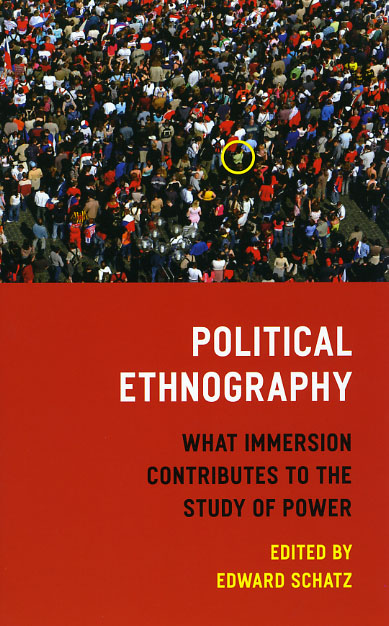A political scientist in the slaughterhouse

A recent article for the Chronicle of Higher Education begins with a description of the five and a half months that Timothy S. Pachirat, one of the contributors to Edward Schatz’s new book Political Ethnography: What Immersion Contributes to the Study of Power, spent working in a Midwest slaughterhouse—”hanging beef livers on hooks,” and using electric prods to move cattle into the holding pens. Such work is not the norm for a PhD in political science. But as the Chronicle‘s David Glenn explains, a few intrepid individuals in political science (taking a cue from anthropologists) have abandoned reliance on statistics and polls, turning instead to ethnographic fieldwork in order to gain a better understanding of how public opinion is really shaped.
In Pachirat’s case, Glenn writes, his fieldwork “allowed him to ‘illuminate in tangible ways the political and ethical consequences of the delegation of dirty, dangerous, and demeaning work.’ Only participant-observation, [Pachirat] says, can give a full picture of how workers, managers, and federal health inspectors experience power relations.” “If nothing else,” as Glenn quotes another of the book’s contributors, Katherine Cramer Walsh, “such observation might give pollsters intelligent ideas about what questions to ask.” (Walsh’s own fieldwork on political beliefs can also be found in her books Talking about Race, and Talking About Politics.)
Political Ethnography, discussed at length in the CHE article, is one of the first to analyze the work that results from this new approach to research in political science, and concludes that political ethnography can and should play a central role in the field.
To find out more about this burgeoning trend in poli-sci read David Glenn’s article on the Chronicle website or pick up a copy of Edward Shatz’s Political Ethnography: What Immersion Contributes to the Study of Power.
Also in the Chronicle recently, three UCP titles made the cut for their recent list of recommend titles in political ethnography:
David D. Laitin, Hegemony and Culture: Politics and Religious Change Among the Yoruba
Katherine Cramer Walsh, Talking About Politics: Informal Groups and Social Identity in American Life
And of course,
Edward Schatz, ed., Political Ethnography: What Immersion Contributes to the Study of Power